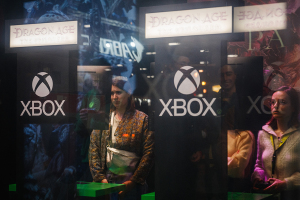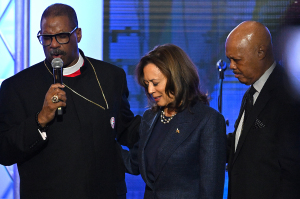Evangelical Writers Challenged to Avoid Alienating the Unchurched
PORTLAND, Ore. – "I have a bone to pick with you," a Christian writer told a group of fellow evangelical writers Thursday.
Evangelical writers nearly always alienate non-evangelicals in their works, noted long-time Christian writer and editor Tim McLaughlin.
While most writers write to impact non-believers, as well as believers, the phrases they use and how they ignore some faith passages are real obstacles to reaching the unchurched, the Oregon native added.
During a workshop, entitled "How the Non-Evangelical World Views You and What You Can Do About It," McLaughlin said he refers to a list of common pitfalls of evangelical writers in offending the unchurched when he writes or edits stories.
"I will not make a dent in any unchurched person's mind unless I attend to this," McLaughlin said, speaking at the annual convention of the Evangelical Press Association.
Unconscious evangelical "passwords," such as how many years an evangelical has been married and how many kids that person has, in a biography is nice from an evangelical perspective, but may be irrelevant or a stumbling block to non-evangelicals, he said.
McLaughlin contends that evangelicals include personal information in a biography to establish credibility based on religious standards rather than professional. After careful consideration, he decided to delete the line on family life in a biography and leave just the subject's professional qualification in his efforts to edit out the "passwords" used in evangelical writing.
The speaker also called into question the campaign for traditional marriage.
Evangelicals have long championed the idea of one man-one woman for life as the biblical standard for marriage, said the evangelical writer. But for non-evangelicals, this may be an unrealistic or inconsistent view because the one-man-one woman for life concept in the Bible is only relevant based on where one looks in the Scripture.
"I think that we are also unrealistic, evangelicals, in how we view let's say marriage," McLaughlin said. "I wonder if we are reluctant to see our current ideas of a Christian marriage in the United States as a thing much more dictated by culture than the Bible.
"Adam and Eve had no civil ceremony, Abraham slept with other women including Hagar, Isaac's wife was selected by his father's servant and was his cousin, David 'collected wives like military victories, and his most memorable son came from an affair with a married woman,' and Prophet Hosea married a whore," McLaughlin noted, speaking from a non-evangelical point of view.
"So what do we have as a biblical model for marriage?" he asked while chuckling.
"Let's not call marriage 'biblical,' as we like to, but healthy," posed McLaughlin.
The evangelical writer and editor with more than 20 years of experience called on evangelical writers in the room to be more thoughtful and conscious of what viewpoint they write from.
"I speak through writing," McLaughlin said, who also edits for a non-Christian publication to be able to see through the eyes of non-believers. "So when I'm writing and editing, I'm not picturing a person who is lost, in all respect, but a person who is finding themselves and being chased by God."




























